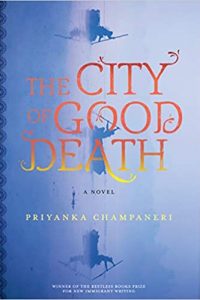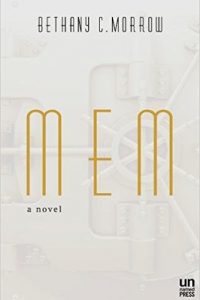Stefan Dziemianowicz reviews Nathan Ballingrud
 In ‘‘Wild Acre’’, the second story in Nathan Ballingrud’s extraordinary debut collection, North American Lake Monsters (and a selection in Ellen Datlow’s The Best Horror of the Year: Volume Five), a contractor and two friends who hope to catch the persons who have been vandalizing their construction site are ambushed during their night-time vigil by what appears to be a werewolf. His two friends are brutally slaughtered, and the experience ruins the contractor’s life. His business collapses, he becomes estranged from friends and neighbors, and in a final breakdown moment he bloodies an overbearing colleague of his wife at a Christmas party. Hoping to turn his unraveling life around, the man returns to the scene of the slaughter to confront the monster. It doesn’t end the way the character expects, nor, for that matter, the way the reader expects, given the final horror that it seems to be building to. Instead, Ballingrud suggests an even greater horror: the possibility that no explanation is forthcoming that will give meaning to that horrible night and the turn the man’s life has taken since.
In ‘‘Wild Acre’’, the second story in Nathan Ballingrud’s extraordinary debut collection, North American Lake Monsters (and a selection in Ellen Datlow’s The Best Horror of the Year: Volume Five), a contractor and two friends who hope to catch the persons who have been vandalizing their construction site are ambushed during their night-time vigil by what appears to be a werewolf. His two friends are brutally slaughtered, and the experience ruins the contractor’s life. His business collapses, he becomes estranged from friends and neighbors, and in a final breakdown moment he bloodies an overbearing colleague of his wife at a Christmas party. Hoping to turn his unraveling life around, the man returns to the scene of the slaughter to confront the monster. It doesn’t end the way the character expects, nor, for that matter, the way the reader expects, given the final horror that it seems to be building to. Instead, Ballingrud suggests an even greater horror: the possibility that no explanation is forthcoming that will give meaning to that horrible night and the turn the man’s life has taken since.
‘‘Wild Acre’’ is very much representative of the nine stories in the book. Ballingrud’s characters are, for the most part, working-class stiffs with limited prospects in life. They’re stuck in dead-end jobs, they struggle to make ends meet, their families are broken, they’re estranged from their spouses and children, and they drink too much. They don’t go seeking out the supernatural; rather, it reveals itself to them, often as a tangible externalization of their longings and feelings of desperation. In ‘‘You Go Where It Takes You’’, a single mother abandoned years before by her husband picks up a stranger for a one-night stand in the diner where she waitresses. He turns out to be a car thief who reveals that in the car he stole, he found a box packed with the skins of 96 people. What’s more, it’s possible to put those skins on and become a completely different person. ‘‘They’re alternatives,’’ he explains. Realizing that she can escape her current depressing life, and believing that ‘‘it’s possible for something beautiful to come out of an awful thing,’’ the woman makes a decision in the story’s closing moments that is heartbreakingly unthinkable for a mother. In ‘‘Sunbleached’’, a teenage boy secretly allows a vampire who has taken refuge in the crawlspace under his house to transform him gradually into a vampire. The boy sees the vampire as his means to attaining power he lacks within his family, but his plans go horribly awry when he discovers that the vampire has been secretly exploiting his younger brother’s longing for the father who abandoned them.
As should be evident, Ballingrud doesn’t avoid the tired tropes of horror fiction. Rather, he refashions them into powerful and refreshingly original metaphors that perfectly serve his story’s ends. ‘‘The Crevasse’’ (written with Dale Bailey) is a tale of Lovecraftian horror, featuring an Antarctic exploration team, one of whose members stumbles upon a cavern beneath the ice crust that has clearly been sculpted with design by its massive, half-glimpsed denizen. But even more Lovecraftian than this familiar image is the sense of cosmic indifference that Ballingrud conjures. The story is set in the immediate aftermath of WWI (whose senseless carnage is described as ‘‘evidence enough of humanity’s divine disfavor’’) and what the main characters thinks of as ‘‘the greatest cosmic prank of all:’’ the Spanish flu pandemic, which claimed his wife’s life. The godless desolation of the Antarctic is the perfect correlative for how the explorer has come to view the world. ‘‘The Good Husband’’, the one story original to the book, is a tale of the reanimated dead, in which a depressed woman commits suicide but continues to exist in the family’s home, interacting with her husband, who witnessed her latest suicide attempt and decided not to try and stop it. Initially, it seems that the relationship between the two reflects the slow death of love in their marriage that contributed to the suicide. It soon becomes clear, though, that the woman’s persistence, even as her body begins deteriorating gruesomely, is as much due to the husband’s lingering love and desperate refusal to let go of his wife after her death.
Ballingrud excels at probing the psychological depths of his characters and revealing the powerful emotions that drive them down the paths they take. In most of the stories, grief and an overwhelming sense of loss are the animating forces. In ‘‘The Way Station’’, a haunting and poignant tale of lives shattered by Hurricane Katrina, a homeless alcoholic shuttles between past and present, memory and reality, as he struggles with surreal visions of friends and loved ones in whose faces and forms he sees the devastation of his native city of New Orleans. In several of the stories, the weird, when it manifests, offers characters a chance of salvation and the power to overcome their loss. In the title tale, a family struggling to re-orient itself after the husband’s release from a prison sentence finds in the body of a dead leviathan that has washed up in a nearby lake a beautiful and enchanting luminescence that suggests something positive and life-affirming can emerge from something corrupted. Likewise, in the Shirley Jackson Award-winning ‘‘The Monsters of Heaven’’, a husband and wife crushed by the loss of their child find, in a supernatural creature who needs their assistance, a surrogate child that helps to salve the wounds to their marriage.
Ballingrud’s prose style is deceptively simple, though clearly he has put in considerable work paring it down to the most essential phrasing necessary for conveying an idea without any waste of words. Paragraphs are studded with descriptions meticulously crafted to fix an image in the reader’s mind: ‘‘The full moon leaks silver blood into the sky.’’ ‘‘Late summer pressed onto this small Mississippi coastal town like the heel of a boot. The heat was an act of violence.’’ ‘‘He imagined the sky dissolving to reveal the hard vault of stars, the galaxy turning above him like a cog in a vast, unknowable engine.’’ Interwoven among passages like these are philosophical insights that cut to the heart of each story. Observing a young child’s hesitance to come out and meet him, the stranger in ‘‘You Go Where It Takes You’’ explains to her mother,
She’s like a thousand different people right now, all waiting to be, and every time she makes a choice, one of those people goes away forever. Until finally you run out of choices and you are whoever you are. She’s afraid of what she’ll lose by coming out to see me. Of who she’ll never get to be.’’
Matched to his original ideas and refreshing refurbishments of genre set pieces, Ballingrud’s writing makes North American Lake Monsters one of the best collections of short fiction for the year.







